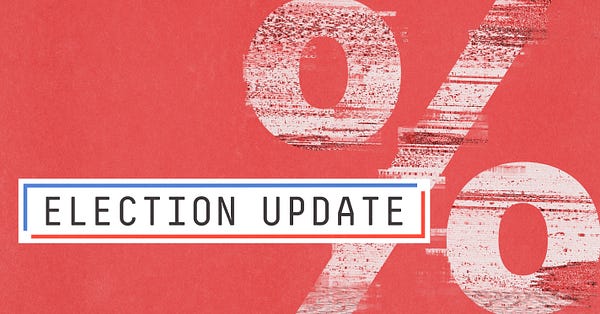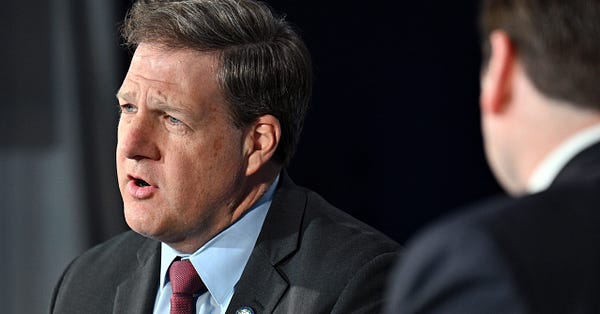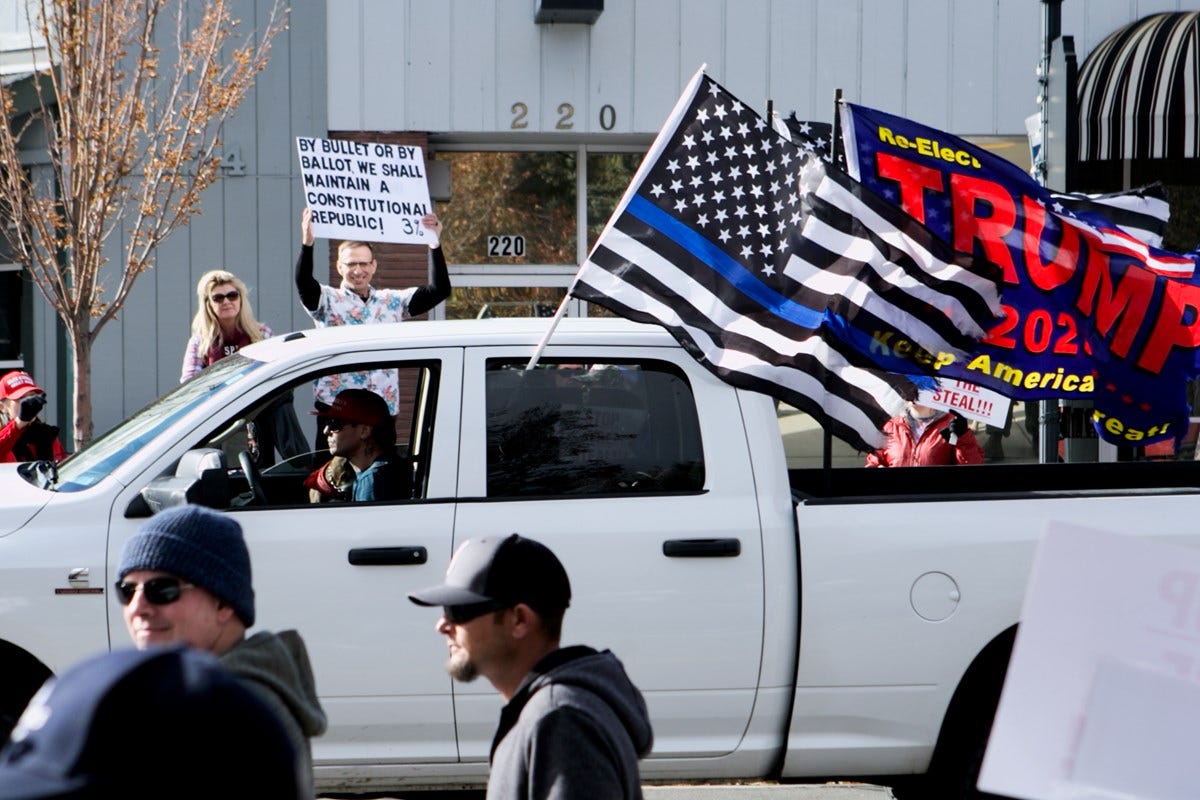Destabilized Saturday Edition #42
History doesn't end, the world keeps flooding, Kyrie's new gig, post-Halloween fentanyl disappointment
Nobody knows what’s going to happen in the election next week. Polling used to have a response rate of something like 1 in 5 (call five people, one would take your survey). Today it’s around 1 in 400.


Still, when I think about next week I feel anxious. A few bad outcomes in key gubernatorial and secretary of state races could make a free and fair 2024 election all but impossible. And if that’s the case, can we still say we live in a democracy?
If we no longer live in a full democracy, then what? How much of the rule of law will still apply post-democracy? What situations that used to be safe no longer will be? This response from TPM to these frightening questions is the right one:
First, history doesn’t end. We hear a lot about how we might lose our democracy in this election. No going back. That’s not how things work. We might lose it. Or, to be more specific, we might enter a period of degraded or superficial democracy in which the trappings and structures remain more or less in place but are fundamentally subverted. But if we lose it … well, then we’ll have to work on getting it back. This isn’t happy talk or Pollyannaish thinking. It’s reality. History doesn’t end. No matter how bad things get there’s a next day when you have to figure out what you do next. Nothing is ever fully solved or fully lost.
It isn’t necessarily comforting, and it isn’t meant to be. But I find it hopeful. Even if the election results are bad, there will still be a tomorrow. We will need to figure out how to respond, how to live in an environment of greater uncertainty, and how to continue working for a better future despite it all.
My Work
Sharing two articles this week, both responses to the question, “How did our democracy end up here?” -EF
From Eisenhower to Trump (link)
The parties in the 1950s had significant overlap. There were liberals and conservatives who were Republicans, and liberals and conservatives who were Democrats. Both parties reflected the country in other ways, too, including being overwhelmingly white and Christian, and the vast majority of adults being married. American politics was so unpolarized that the American Political Science Association (APSA), in a report called Toward a More Responsible Two-Party System, argued that it was important for the country to have more ideologically distinct parties. APSA’s argument, rooted in democratic theory, was that when the major parties in a two-party system are highly similar, voters can’t easily align their vote with the policies and programs they prefer. The less clear the parties’ brands, the harder it is for people to cast informed votes. So how did we get from the homogeneous quasi-unity of the 1950s to the sharp-edged polarization of today?
Internet incentives and GOP authoritarianism (link)
The emergence of the internet transformed the incentives candidates face, as well as the skills and qualities rewarded in the political sphere. Being great at wooing donors, traditional media elites, and party leaders used to be critical, now it’s far less relevant. What matters instead is winning the attention war. Ambitious politicians today need to excel at grabbing voters’ attention and building a large audience of supporters online.
—
Related to the second piece, which is on how the internet “attention war” incentivizes authoritarianism on the right, check out this recent Bloomberg investigation:


Interesting Reads
Elections Have Consequences (link)
Republicans won a remarkable nine seats in the U.S. Senate in the elections of 2014. That sweep empowered Senate Majority Leader Mitch McConnell to block President Barack Obama’s 2016 nomination of Merrick Garland to the U.S. Supreme Court. …setting us on the path to a conservative supermajority on the Court that this year reached a 6–3 decision to overturn Roe v. Wade.
What enabled the Republicans’ extraordinary showing in those midterms? Good evidence suggests that the GOP owed its sweep to an event almost forgotten in this decade that is now so defined by the COVID-19 pandemic: the panic in the fall of 2014 over the Ebola virus.
Tweets of the Week


Some gallows humor as a potential democratic catastrophe looms next week:


This one is narrowly targeted:
Extreme Weather Watch


Creeping Fascism Watch










Progress Joy and Hope
























